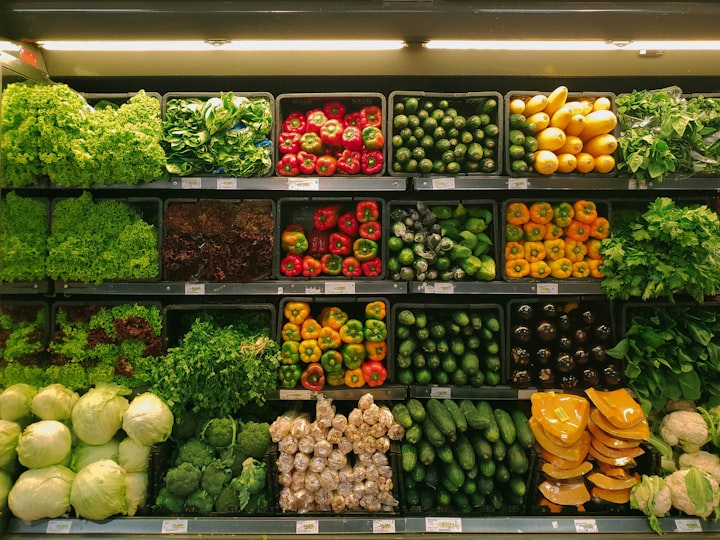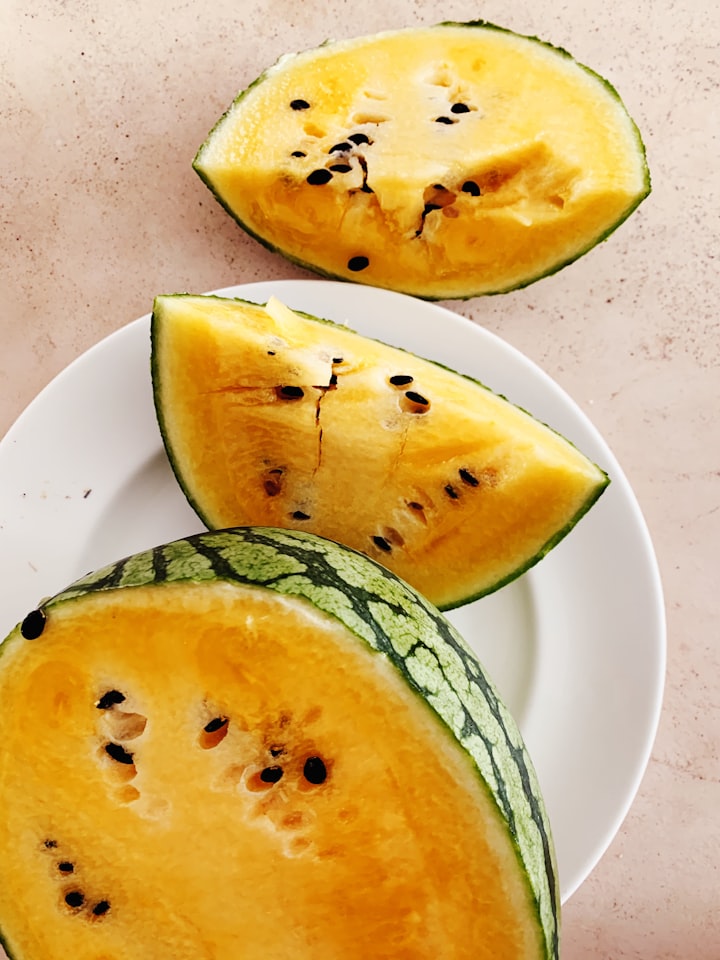Lowest Sugar Fruits and Vegetables Secrets You Never Knew
Lowest Sugar Fruits and Vegetables
Lowest Sugar Fruits and Vegetables Secrets You Never Knew
Eating a healthy and balanced diet is essential for maintaining good health and preventing chronic diseases. However, many people struggle to control their sugar intake, which can lead to weight gain, diabetes, and other health issues. One way to address this problem is to incorporate low-sugar fruits and vegetables into your diet. These nutrient-dense foods provide a variety of health benefits while satisfying your sweet tooth. In this article, we’ll explore some of the best lowest sugar fruits and vegetables that you can enjoy every day.
CLICK HERE, FOR DIET PLAN THAT LOSE WEIGHT FAST “
The Lowest Sugar Fruits
1) Avocado
Avocado is a delicious and versatile fruit that is rich in healthy fats, fiber, and vitamins. It has a creamy texture and a subtle flavor that makes it a great addition to salads, smoothies, or as a spread on toast. A medium-sized avocado contains only 1 gram of sugar, making it an excellent low-sugar fruit option.
2) Olives
Olives are often overlooked as a fruit, but they are a great low-sugar option that provides a variety of health benefits. They are a good source of healthy fats and antioxidants, which can help reduce inflammation and improve heart health. One serving of olives (about 5-6) contains less than 1 gram of sugar.
3) Tomatoes
Tomatoes are a versatile fruit that is commonly used in salads, sauces, and sandwiches. They are rich in vitamins, minerals, and antioxidants, and have a sweet and tangy flavor. A medium-sized tomato contains only 2.4 grams of sugar, making it a low-sugar fruit option that you can enjoy in a variety of dishes.
4) Lemon
Lemon is a refreshing and flavorful fruit that is often used in drinks, dressings, and marinades. It is rich in vitamin C and antioxidants, which can help boost immunity and protect against chronic diseases. A medium-sized lemon contains only 1.5 grams of sugar, making it a great low-sugar fruit option.
5) Lime
Limes are another citrus fruit that is often used as a flavoring agent in cooking and beverages. They are an excellent source of vitamin C and other essential nutrients. One medium-sized lime contains only 1.1 grams of sugar, making it an ideal choice for individuals looking to reduce their sugar intake.
Learn More About: What Do Vegans Eat: A Best Detailed Guide
6) Grapefruit
Grapefruit is a citrus fruit that is often used in salads and juices. It is an excellent source of antioxidants, fiber, and other essential nutrients. One medium-sized grapefruit contains only 8 grams of sugar, making it an ideal choice for individuals looking to reduce their sugar intake.
7) Raspberry
Raspberries are a sweet and tart fruit that is often used in desserts and breakfast dishes. They are an excellent source of fiber, vitamin C, and other essential nutrients. One cup of raspberries contains only 5 grams of sugar, making it an ideal choice for individuals looking to reduce their sugar intake.
8) Blackberry
Blackberries are a juicy and flavorful fruit that is often used in desserts and breakfast dishes. They are an excellent source of fiber, vitamin C, and other essential nutrients. One cup of blackberries contains only 7 grams of sugar, making it an ideal choice for individuals looking to reduce their sugar intake.
9) Strawberry
Strawberries are a sweet and juicy fruit that is often used in desserts, smoothies, and breakfast dishes. They are an excellent source of fiber, vitamin C, and other essential nutrients. One cup of strawberries contains only 7 grams of sugar
Learn More About: Why is Flaxseed Good For You? Made Simple
10) Raspberries
Raspberries contain only 5 grams of sugar per 100 grams, making them an excellent choice for those looking to reduce their sugar intake. They are also rich in antioxidants and vitamins.
11) Kiwi
Kiwi is low in sugar and high in vitamin C and fiber, making it an ideal snack for those looking to reduce their sugar intake.
12) Watermelon
Watermelon is a delicious and refreshing fruit that is also low in sugar. It is high in vitamin A, vitamin C, and antioxidants.
13) Cantaloupe
With only 8 grams of sugar per 100 grams, cantaloupe is a great low-sugar fruit option. It is also high in vitamin C and A, as well as potassium.
14) Grapefruit
Grapefruit is low in sugar and high in antioxidants, making it a great choice for those looking to boost their immune system.
15) Peach
Peaches are a low-sugar fruit option, with only 8 grams of sugar per 100 grams. They are also high in vitamin C, fiber, and potassium.
16) Plum
Plums have only 7 grams of sugar per 100 grams, making them a great low-sugar fruit option. They are also high in fiber and vitamin C.
17) Apricot
Apricots contain only 9 grams of sugar per 100 grams and are packed with fiber, vitamins, and minerals.
18) Cranberries
Cranberries are low in sugar, with only 4 grams of sugar per 100 grams. They are also high in antioxidants and vitamin C.
19) Orange
Oranges are a low-sugar fruit option, with only 9 grams of sugar per 100 grams. They are also high in vitamin C, fiber, and potassium.
20) Guava
Guava is a low-sugar fruit option, with only 5 grams of sugar per 100 grams. It is also high in vitamin C, fiber, and antioxidants.
21) Nectarine
Nectarines have only 8 grams of sugar per 100 grams, making them a great low-sugar fruit option. They are also high in vitamin C and fiber.
CLICK HERE, FOR DIET PLAN THAT LOSE WEIGHT FAST “
The Lowest Sugar Vegetables
1) Broccoli
Broccoli is a nutrient-dense vegetable that is packed with vitamins, minerals, and fiber. It has a mild flavor and can be enjoyed raw or cooked in a variety of dishes. One cup of broccoli contains only 1.5 grams of sugar, making it an excellent low-sugar vegetable option.
2) Cauliflower
Cauliflower is a versatile vegetable that can be used as a low-carb alternative to rice, pizza crust, or mashed potatoes. It is a good source of fiber, vitamins, and minerals, and has a mild and slightly sweet flavor. One cup of cauliflower contains only 2 grams of sugar, making it a great low-sugar vegetable option.
3) Asparagus
Asparagus is a delicious and nutritious vegetable that is rich in fiber, vitamins, and minerals. It has a unique flavor and texture that makes it a great addition to salads, stir-fries, or as a side dish. One cup of asparagus contains only 1.3 grams of sugar, making it an excellent low-sugar vegetable option.
4) Brussels Sprouts
Brussels sprouts are a cruciferous vegetable that is rich in nutrients and antioxidants. They have a slightly bitter and nutty flavor, which can be enhanced by roasting or sautéing. One cup of Brussels sprouts contains only 2.2 grams of sugar, making them a great low-sugar vegetable option.
Learn More About: The Best Health Benefits of Shiitake Mushrooms
5) Spinach Spinach
Spinach Spinach is a leafy green vegetable that is low in calories and high in nutrients. It is also low in sugar, making it an excellent choice for those watching their sugar intake. Spinach can be eaten raw in salads or cooked in a variety of dishes.
6) Cabbage
Cabbage is a cruciferous vegetable that is low in sugar and high in fiber. It is also a good source of vitamin C, vitamin K, and folate.
7) Zucchini
Zucchini is a low-sugar vegetable that is high in water content. It is also a good source of vitamins A and C, as well as potassium.
8) Cucumber
Cucumber is a low-sugar vegetable that is high in water content. It is also a good source of vitamins C and K, as well as potassium.
Learn More About: The Ultimate Guide to Treating Headaches Around the Temple
9) Radishes
Radishes are a low-sugar vegetable that is high in water content. They are also a good source of vitamin C and potassium.
10) Celery
Celery is a low-sugar vegetable that is high in water content. It is also a good source of vitamin K and potassium.
11) Green Beans
Green beans are a low-sugar vegetable that is high in fiber. They are also a good source of vitamins A and C, as well as folate.
12) Peppers
Peppers are a low-sugar vegetable that is high in vitamin C. They come in a variety of colors, including red, green, and yellow.
13) Tomatoes
Tomatoes are a low-sugar vegetable that is high in water content. They are also a good source of vitamin C and potassium.
14) Kale
Kale is a leafy green vegetable that is low in calories and sugar. It is also a good source of vitamins A, C, and K, as well as folate.
15) Artichokes
Artichokes are a low-sugar vegetable that is high in fiber. They are also a good source of vitamins C and K, as well as folate.
16) Carrots
Carrots are a root vegetable that is low in sugar and high in fiber. They are also a good source of vitamin A and potassium.
Learn More About: Surprising Things You Must Know About Food Good For GERD
What fruits to avoid high sugar
Fruits are an important part of a healthy diet, but some fruits are high in sugar and may not be suitable for people who need to watch their sugar intake. High sugar intake can lead to several health problems such as obesity, diabetes, and heart disease. In this article, we will discuss what fruits to avoid high sugar and provide alternative fruits that are low in sugar.
1) Bananas
Bananas are a popular fruit that is high in sugar. A medium-sized banana contains around 14 grams of sugar, which is more than half of the recommended daily intake for women. If you are trying to cut back on sugar, it’s best to limit your intake of bananas.
Alternative fruits: Instead of bananas, you can try eating berries such as strawberries, raspberries, or blueberries. These fruits are low in sugar and high in antioxidants, making them a great choice for a healthy snack.
2) Mangoes
Mangoes are a tropical fruit that is loved by many, but they are also high in sugar. A medium-sized mango contains around 23 grams of sugar, which is almost the entire daily intake of sugar for women. If you are watching your sugar intake, it’s best to avoid mangoes.
Alternative fruits: Instead of mangoes, you can try eating citrus fruits such as oranges, lemons, or grapefruits. These fruits are low in sugar and high in vitamin C, making them a great choice for a healthy snack.
Learn More About: What Causes Bloody Stool: How to identify Possible Reasons
3) Grapes
Grapes are a popular fruit that is often used as a snack or in salads. However, they are also high in sugar. A cup of grapes contains around 23 grams of sugar, which is almost the same amount of sugar as a medium-sized mango. If you are trying to cut back on sugar, it’s best to limit your intake of grapes.
Alternative fruits: Instead of grapes, you can try eating apples or pears. These fruits are low in sugar and high in fiber, making them a great choice for a healthy snack.
4) Pineapples
Pineapples are a tropical fruit that is often used in smoothies and desserts. However, they are also high in sugar. A cup of pineapple contains around 16 grams of sugar, which is more than half of the recommended daily intake for women. If you are trying to cut back on sugar, it’s best to avoid pineapples.
Alternative fruits: Instead of pineapples, you can try eating kiwis or melons such as watermelon or cantaloupe. These fruits are low in sugar and high in vitamins and minerals, making them a great choice for a healthy snack.
5) Dried Fruits
Dried fruits such as raisins, dates, and prunes are often considered a healthy snack, but they are also high in sugar. A small box of raisins contains around 25 grams of sugar, which is more than the recommended daily intake for women. If you are trying to cut back on sugar, it’s best to avoid dried fruits.
Alternative fruits: Instead of dried fruits, you can try eating fresh fruits such as peaches, nectarines, or apricots. These fruits are low in sugar and high in fiber, making them a great choice for a healthy snack.
If you are trying to cut back on sugar, it’s best to avoid high-sugar fruits such as bananas, mangoes, grapes, pineapples, and dried fruits. Instead, you can try eating low-sugar fruits such as berries, citrus fruits, apples, pears, kiwis, and melons. By making these simple changes, you can still enjoy a variety of fruits while keeping your sugar intake under control.
Learn More About: Which Foods are Naturally Gluten Free? Your Ultimate Guide
Is watermelon high in sugar?
Is watermelon high in sugar? This is a common question that many people ask when they’re trying to watch their sugar intake. While watermelon is a delicious and refreshing fruit, there are concerns that it may contain too much sugar. In this article, we will take a closer look at the sugar content of watermelon and determine whether or not it is a healthy choice for those looking to cut back on sugar.
What is Watermelon?
Watermelon is a juicy and sweet fruit that is a popular summertime treat. It is a member of the Cucurbitaceae family, which also includes other fruits like cantaloupe, honeydew, and cucumber. Watermelon is a great source of hydration as it is composed of 92% water. It is also rich in nutrients such as vitamins A and C, potassium, and lycopene, which is an antioxidant that gives watermelon its vibrant red color.
Learn More About: Exercise for the Sciatica: The Best Ways To Relieving Pain
Watermelon Sugar Content
Now, let’s get to the question at hand. Is watermelon high in sugar? The answer is no, watermelon is not high in sugar. One cup of diced watermelon contains approximately 9 grams of sugar. This is a relatively low amount of sugar compared to other fruits such as mangoes, grapes, and bananas. In fact, watermelon has a lower sugar content than many other fruits, making it an excellent choice for those who are watching their sugar intake.
Benefits of Eating Watermelon
Not only is watermelon low in sugar, but it also has several health benefits. The high water content in watermelon can help keep you hydrated, especially during hot summer days. Additionally, the vitamins and minerals in watermelon can help support a healthy immune system, maintain healthy skin, and promote healthy digestion. Watermelon is also low in calories, with only 46 calories per cup, making it a great choice for those who are watching their weight.
How to Incorporate Watermelon into Your Diet
If you’re looking to incorporate more watermelon into your diet, there are several ways to do so. You can enjoy watermelon as a snack on its own or add it to a fruit salad. Watermelon can also be used to make refreshing summer drinks, such as agua fresca or watermelon juice. Additionally, watermelon can be grilled or roasted, adding a unique twist to your favorite recipes.
Watermelon is not high in sugar and can be a healthy addition to your diet. With its high water content, vitamins, and minerals, watermelon is an excellent choice for those looking to maintain a healthy lifestyle. So go ahead and enjoy this juicy and refreshing fruit without worrying about its sugar content.
Learn More About: Astonishing Benefits of Vitamins B12 for a Healthier Body
FAQs
Are all fruits and vegetables low in sugar?
No, not all fruits and vegetables are low in sugar. Some fruits and vegetables, such as bananas, grapes, and potatoes, are relatively high in sugar and should be consumed in moderation.
How can I incorporate low-sugar fruits and vegetables into my diet?
You can incorporate low-sugar fruits and vegetables into your diet by adding them to salads, smoothies, stir-fries, or as a side dish. You can also snack on them throughout the day, or use them as a healthy dessert option.
Can low-sugar fruits and vegetables still be sweet?
Yes, low-sugar fruits and vegetables can still be sweet. They contain natural sugars that provide a subtle sweetness, which can be enhanced by cooking or combining them with other ingredients.
Conclusion
Incorporating low-sugar fruits and vegetables into your diet is a great way to satisfy your sweet cravings while promoting good health. These nutrient-dense foods provide a variety of vitamins, minerals, and antioxidants, which can help reduce inflammation, boost immunity, and prevent chronic diseases. Some of the best low-sugar fruits and vegetables include avocado, olives, tomatoes, broccoli, cauliflower, asparagus, and Brussels sprouts. By incorporating these foods into your meals plan will help your health a lot and satisfying your well-being.
About the Creator
adebayo sunday
I have been working as an SEO expert for last 3 years. I am offering you full SEO Services of White Hat SEO - Link Building - Guest Posting - Blog Posting - Guest Blogging –Web2.0 backilink-forum posting –and health expert






Comments
There are no comments for this story
Be the first to respond and start the conversation.